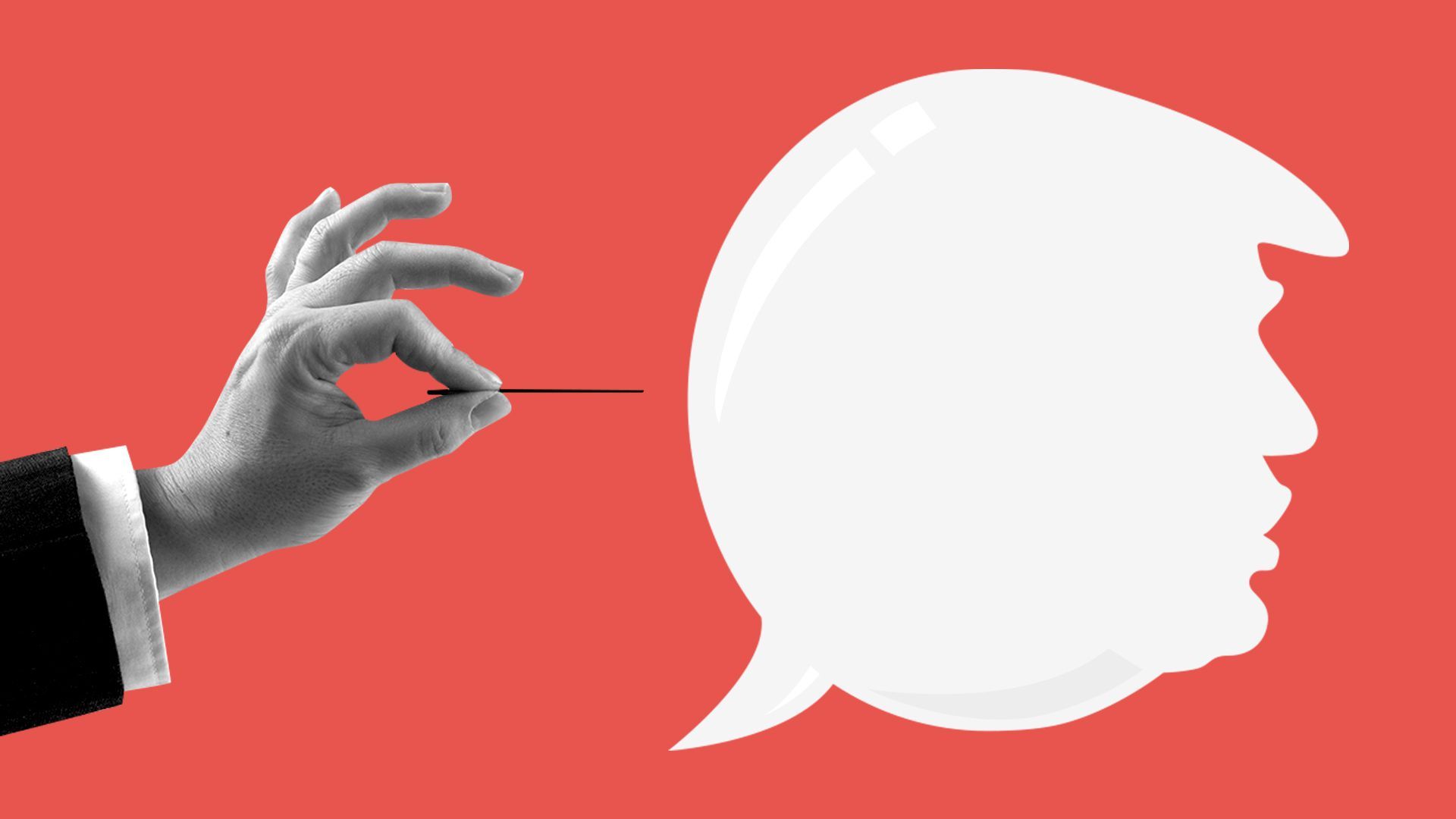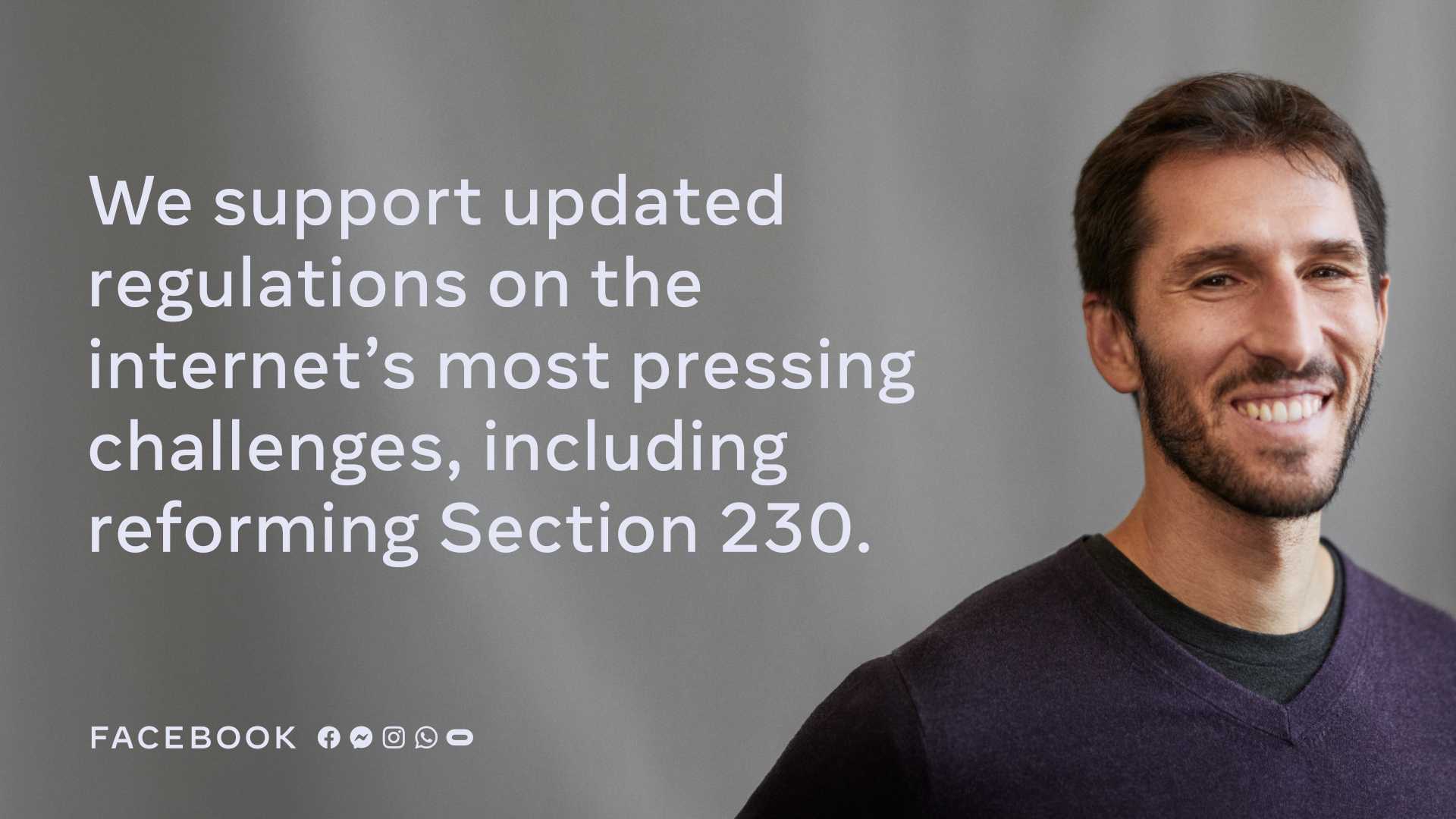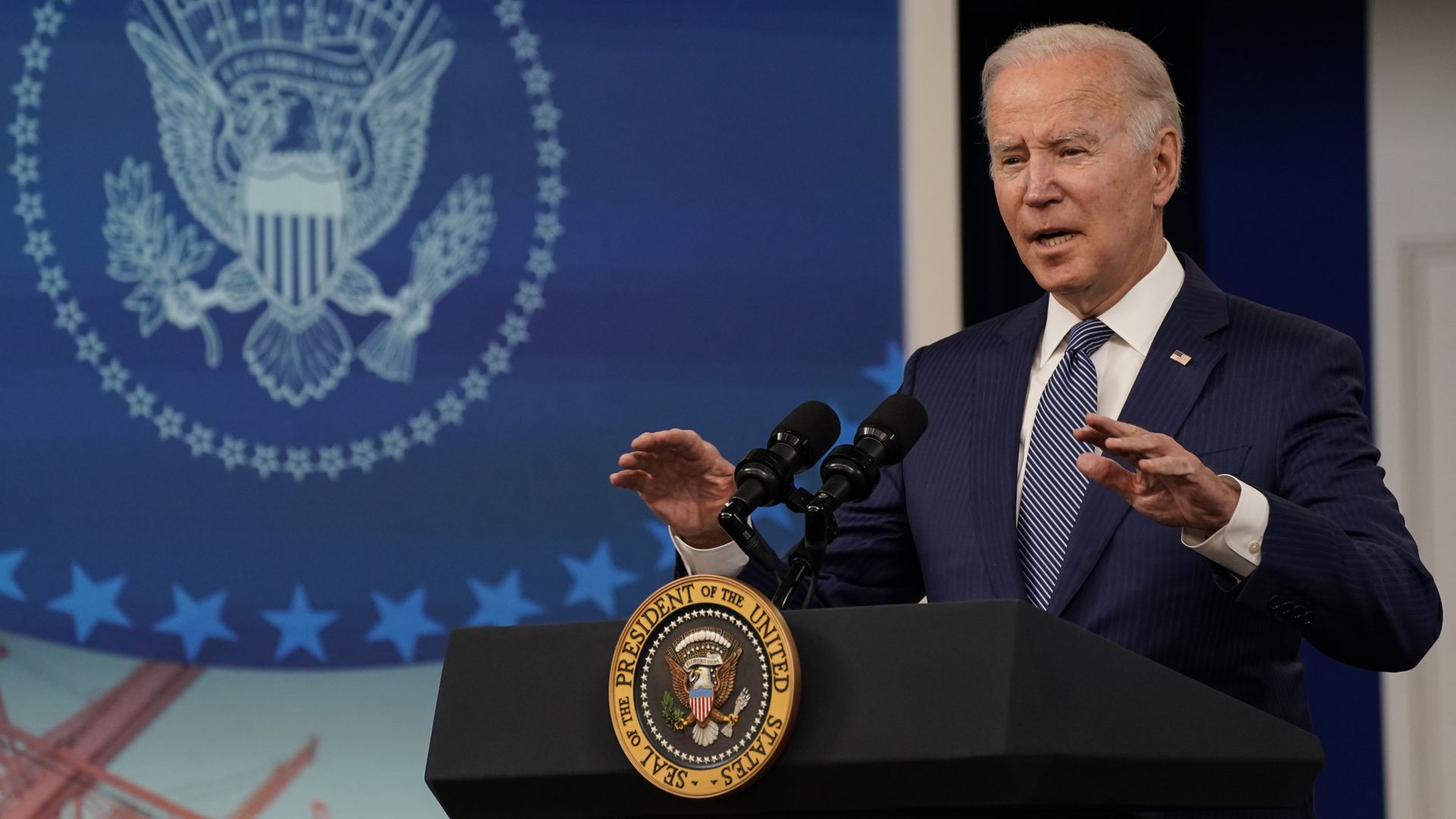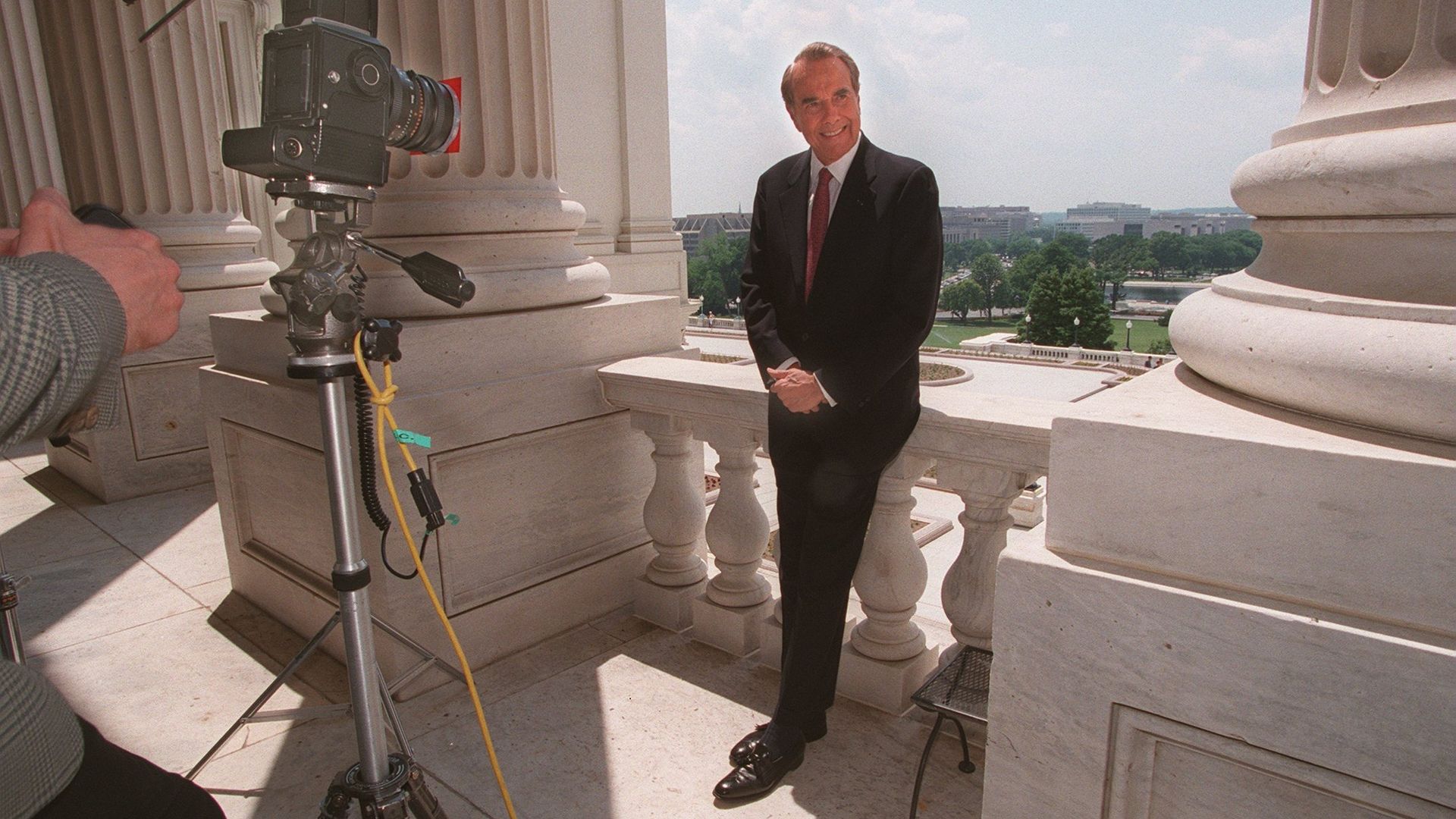| |
| |
| |
| Presented By Facebook |
| |
| Axios Sneak Peek |
| By the Axios Politics team ·Dec 05, 2021 |
| Welcome back to Sneak. 🚨Breaking: President Biden tonight ordered all U.S. flags to fly at half-staff in honor of Robert J. Dole, a prominent member of the Greatest Generation. Smart Brevity™ count: 1,052 words ... 4 minutes. Edited by Glen Johnson. |
| |
| |
| 1 big thing: Dumping Trump |
 |
|
| Illustration: Aïda Amer/Axios |
| |
| Vulnerable House Democrats are convinced they need to talk less about the man who helped them get elected: President Trump, writes Axios' Sarah Mucha. Why it matters: Democrats are privately concerned nationalizing the 2022 midterms with emotionally charged issues — from critical race theory to Donald Trump's role in the Jan. 6 insurrection — will hamstring their ability to sell the local benefits of President Biden's Build Back Better agenda. - The push by centrist lawmakers, especially from the suburbs, to keep the conversation away from Trump is frequently derailed by the party's loudest voices — and their insistence to talk about him at every turn.
- "People don't want to hear about Donald Trump," Rep. Susan Wild (D-Pa.), told Axios. "They're going to vote because they want to see people get sh-t done."
- "All politics is local," Rep. Carolyn Bourdeaux (D-Ga.) tweeted last week. "Whether it's advocating for the equitable redevelopment of Gwinnett Place Mall, or securing funding for our local trailway system, every day I am working in Congress for our community."
- "All politics are local," Rep. Josh Gottheimer (D-N.J.) echoed during an interview with Axios. "I don't believe you run national campaigns for Congress."
Keep reading. |
    |
| |
| |
| 2. First look: Facing GOP challenge, immigration groups merge |
 |
|
| A U.S. naturalization ceremony. Photo: Paul Bersebach/MediaNews Group/Orange County Register via Getty Images |
| |
| Two leading immigration groups — the New American Economy and the American Immigration Council — are merging, in part, to prepare for a potential Republican takeover of Congress, Axios' Stef Kight has learned. Why it matters: Immigration has increasingly become a central U.S. political issue. Pro-immigrant groups have gained influence in recent years both through their advocacy and litigation — especially during the Trump era. A return to power and immigration control by the GOP requires more clout, the two groups say. - "It's rare that nonprofits merge, but it shouldn't be," said Jeremy Robbins, who served as executive director of New American Economy and will retain that title in the new group.
- NAE is an immigration think tank founded over a decade ago by Michael Bloomberg.
- "I believe our field needs to evolve, and that it's time to reimagine our work in a way that helps us best serve newcomers while rebuilding a bipartisan and constructive case for what immigration means for America."
The new group will be named the American Immigration Council. The council was founded by the sister group American Immigration Lawyers Association — the only U.S. legal association for immigration attorneys. - The merger comes after an outcry among immigrant advocates, including the council, over the Biden administration reinstating the Trump-era "Remain in Mexico" policy, under federal court order.
- It also comes as groups rethink the best way to push pro-immigrant policies in anticipation of Republicans taking back the House next year. That includes an emphasis on state and local policies, particularly in places like Texas, Ohio and Colorado with new immigrant communities.
- Trump ended the Deferred Action for Childhood Arrivals (DACA) program, created policies to make it more difficult for migrants to gain asylum and imposed a new wealth and health "public charge" test for green card applicants.
Keep reading. |
    |
| |
| |
| 3. By the numbers: We're not alone |
 Reproduced from Pew Research Center; Chart: Axios Visuals Inflation in the U.S. has risen during the past two years at the third-fastest rate out of 46 OECD and other economically significant countries. The big picture: Rising prices aren't just a problem in the United States, Stef also writes. Thirty-nine of the other countries analyzed by Pew Research Center saw inflation increase between the third quarter of 2019 and the third quarter of this year. - Many countries who are members of the Organization for Economic Cooperation and Development (OECD) have followed a similar trend: Low inflation before COVID-19, followed by flat or falling inflation in the middle of the pandemic.
- Then, in the second and third quarters of this year, inflation started rising as nations began to resume normal life, according to Pew.
By the numbers: While the U.S. has seen its inflation rate rise faster than all but two countries analyzed, its absolute annual inflation rate is the eighth highest of the group. - And while inflation has declined since 2019, Argentina is still plagued by the highest inflation rate of any other country at 52%.
- It's followed by Turkey (19%), which also saw a sharp rise in inflation compared to two years ago.
- Meanwhile, Japan has had the opposite problem — struggling to deal with prices that just keep falling. Consumer prices for this quarter fell 0.2% compared to last year.
|
    |
| |
| |
| A message from Facebook |
| Why Facebook supports updated internet regulations, including Section 230 |
| |
 |
| |
| Aaron is one of 40,000 people working on safety and security issues at Facebook. Hear more from Aaron on why Facebook supports updating regulations on the internet's most pressing challenges, including reforming Section 230 to set clear guidelines for all large tech companies. |
| |
| |
| 4. Biden's Cabbage Patch offensive |
 |
|
| President Biden speaks last Wednesday about the nation's supply-chain issues. Photo: Ting Shen/Bloomberg via Getty Images |
| |
| In the final weeks of the 2021 holiday shopping season, President Biden has mounted a Cabbage Patch offensive — trying to diminish Americans' anxiety about pandemic shortages and price spikes by recalling past runs on toys, Axios' Glen Johnson writes. Driving the news: "There are items every year that sell out, that are hard to find," he said Wednesday at the White House. - "Some of you moms and dads may remember Cabbage Patch Kids back in the '80s or Beanie Babies in the '90s, or other toys that have run out at Christmas time in past years when there was no supply chain problem," the president said.
Why it matters: Biden is testing more plainspoken and aggressive language to defend his administration's economic and coronavirus policies as he gets battered in the polls and urged by congressional Democrats to do more to change the narrative. - The cost and availability of everything from food to toys, appliances, cars and houses have been impacted.
- Biden highlighted his efforts to lower gas prices and noted inflation in places like the United Kingdom, Germany and Canada as "a natural byproduct of a world economy shut down by the pandemic." As the virus is controlled and normalcy returns, he predicted, "the more price pressures will ease."
- He also said engagement with CEOs, labor officials and ports are making a difference: "We're heading into a holiday season in very strong shape. And it's not because of luck. We averted potential crisis by figuring out what needed to get fixed and then we brought people together to do the hard work of fixing it."
- His holiday gift references were the most kitchen-table of arguments.
Keep reading. |
    |
| |
| |
| 5. Pic du jour |
 |
|
| Photo: Yunghi Kim/The Boston Globe via Getty Images |
| |
| Sen. Bob Dole of Kansas, after winning the Republican presidential nomination, posed in June 1996 on what became known as "Dole Beach," the Senate Republican leader's Capitol balcony. - Dole famously tanned himself in that spot during his long legislative career.
- The World War II hero died today at age 98.
|
    |
| |
| |
| A message from Facebook |
| Facebook's industry-leading investments are stopping bad actors |
| |
 |
| |
| We've invested $13 billion in teams and technology over the last 5 years to enhance safety. It's working: In just the past few months, we took down 1.7 billion fake accounts to stop bad actors from doing harm. But there's more to do. Learn more about how we're working to help you connect safely. |
| |
| 🚀 Thanks for beginning your week with us. A reminder your family, friends and colleagues can subscribe to Sneak or any of Axios' other free local and national newsletters through this link. |
 | | It'll help you deliver employee communications more effectively. | | |
Post a Comment
0Comments